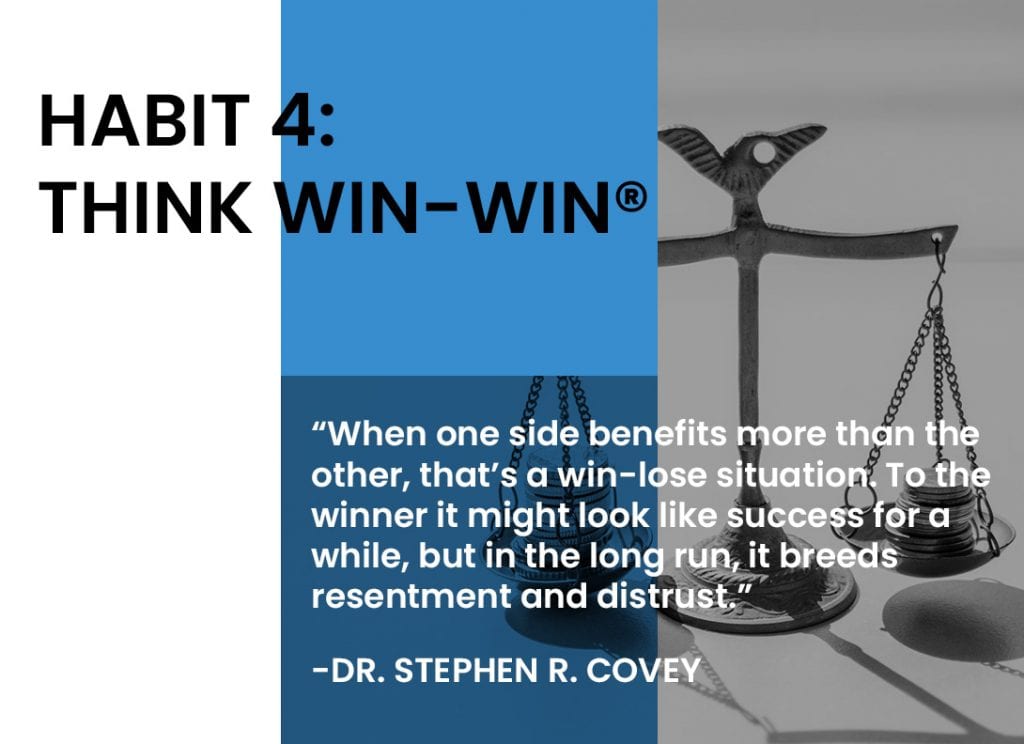16 Dec STEPHEN COVEY’S SEVEN HABITS OF HIGHLY EFFECTIVE PEOPLE – ARTICLE 4

The next article is from Alan Sides who describes five features of Habit 4: ‘Think Win:Win’ in operational environments.
Reflecting on my work over the past 20 years, there are a number of features of successful ‘Win:Win’ operational environments that I have noticed – I’ve listed 5 of them below. It is important to note that Habit 4 is grouped with Habit 5: Seek First to Understand, then to be Understood and Habit 6: Synergise, under ‘Public Victory’ in Covey’s 7 Habits – which together aim to achieve ‘victory’ with others.
An attitude of seeking and valuing the input of others:
Before writing this article, I had in mind that Habit 4 was ‘Win:Win’ but I’d missed out the ‘Think’ on the front. Delivering Win:Win is more a state of mind than a process. But how does this attitude develop, where does it come from, how do you encourage it?
A readiness to quickly develop Win:Win solutions:
Win:Win solutions are time efficient – with the quality of the solution, you also get the buy-in/engagement. But I also see good teams prepared to slow themselves down if an effective solution doesn’t immediately jump out. Even then it doesn’t usually take long to plot the way forward.
Recognising that Win:Win solutions are often more complete solutions:
One of the benefits of actively seeking the input of others to develop the Win:Win is how a fuller perspective for the context of that decision builds up. For example, one individual may be drawn to addressing the immediate issue in isolation, another may have eyes on the longer term. The Win:Win solution they’ll develop together will deliver on both.
Building relationships when you work Win:Win with others:
When you deliver the developed solution and see the benefits of having taken account of each other, you have a common ownership in what you achieve together.
Can the principle of Win:Win take the edge off a need for urgency and decisiveness?
If your only mode of Win:Win is deliberate collaboration, then there is a danger of this. There will be times when there is a pressing need for an individual to make decisions and take action. But a Win:Win mindset in these moments will make a difference. That said I think no matter what your style I think there is nearly always room for the question, ‘that’s what I want to say, what do you think?’!



